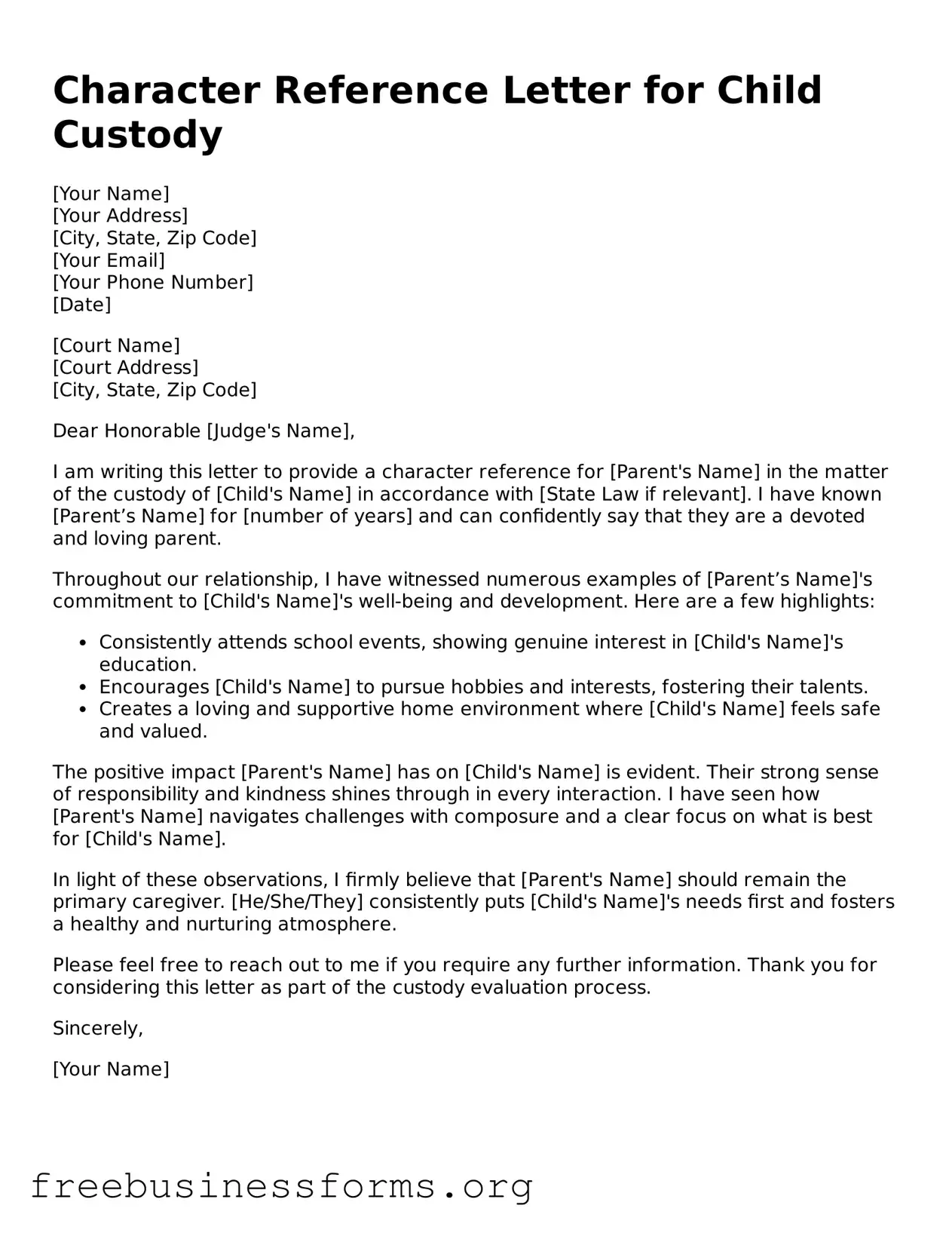Official Character Reference Letter for Child Custody Form
The Character Reference Letter for Child Custody form serves as a vital tool in family law cases, providing insight into a parent's character and suitability for custody. This letter, typically written by friends, family, or colleagues, can significantly influence a court's decision regarding child custody arrangements. Understanding how to craft a compelling character reference is essential for anyone navigating the complexities of custody disputes.
Open Form Here

Official Character Reference Letter for Child Custody Form
Open Form Here

Open Form Here
or
↓ PDF File
Quickly complete this form online
Complete your Character Reference Letter for Child Custody online quickly — edit, save, download.